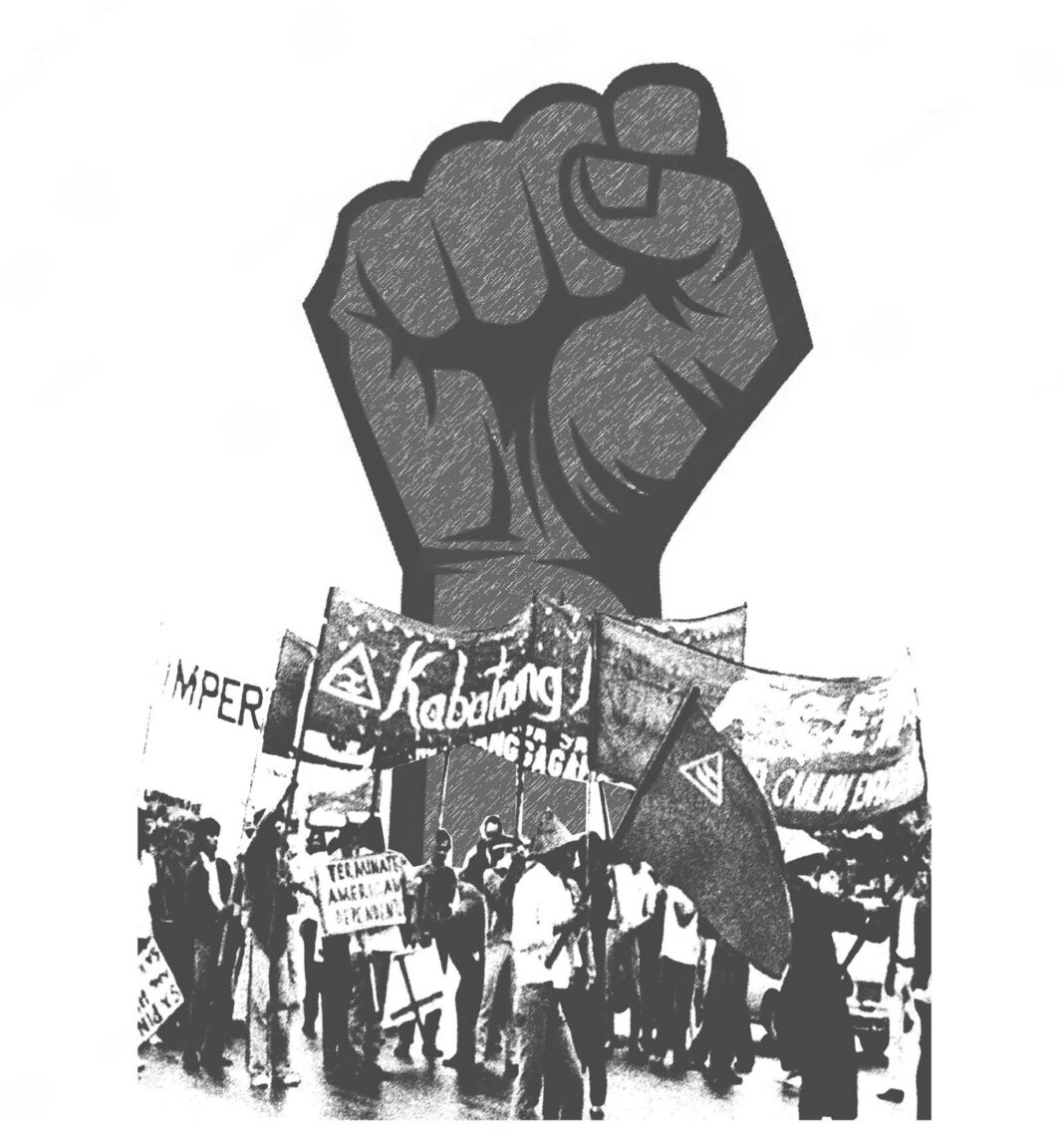Meet me on Morayta
before we march to our beloved stronghold,
the Peace Arch in Mendiola,
where the blood of our martyrs
cleansed its cornerstone.
Swear that we will outnumber
the uniformed men in line.
Meet me there, but watch your back
lest a stranger follows
with sinister eyes.
“Don’t forget to pass by Mendiola
and pray at St. Jude’s chapel,”
Mother will say before my board exams.
Let’s greet Bonifacio in Lawton.
Turn to where he points his bolo,
to where we must go.
Across him is the walled city
where the summer flametrees bloom.
Do you wonder if he’s proud of us?
If this is what we must do
in his name?
We sing of a new revolution,
the sequel to what he made.
“They built a fountain here?”
Father will observe, as Liwasang Bonifacio
becomes a gentrified mess to me.
See where the museum in Ermita stands,
the Old Legislative Building,
where somebody threw a coffin
at the dictator entering his car.
We don’t do it like that anymore.
We used to be more creative.
But because his children are still alive,
we may be lucky to try again.
So many of us have already died
for museums to remember our names.
“He really held his inauguration here, no?”
I will scoff, sick in the stomach at how the dictator’s son
wishes to erase the spark of the First Quarter Storm.
Chant with me on Jones Bridge
about the people, the nation,
now fighting back.
Wear red, black,
your comfiest shoes,
and be prepared to run
when the stoplights switch soon.
Never mind the odors of Pasig,
just scream and clap louder.
Our lives depend on it.
“They captured — butchered — him,”
one of us will say one day.
When the circle becomes smaller and smaller.
I will wait in Santa Mesa
where I offered my humble house,
so we can discuss the manifesto
in hushed but confident tones.
Family is away for the weekend
to give way for our chosen family
of political misfits.
As you pass through the gates
relax those weary shoulders,
unclench your fist.
“What’s in this box?” my sister will ask
of the contraband books and pamphlets
as we renovate the house.
Come quickly to Carriedo station,
so we can race to the dispersion
gone violent and add our bodies
to the barricade.
Bring nothing but a phone
that through captured videos
the rest of the world will know.
Put medics on speed-dial.
These pigs we do not trust.
They serve and protect none but themselves.
“It’s good that they didn’t make you go
up the mountains,” my older cousin will say.
He’s a policeman assigned in Karingal.
Hold these placards with me on España,
as we see our comrades goodbye
and hail their northbound buses.
Mother has left me ten missed calls herself
while we were locking arms
for the great motherland.
I have memorized this city
in such a short while,
but my own mother’s fears
I cannot.
“You don’t fight anymore?” a ninang will ask.
My Mom will smile and snicker:
“Your inaanak was just in a phase.”
Meet me on Morayta
in one of the cafes there.
Hear me cry about my choice
to “lie low,” to leave.
Judge me for still wanting
these petit-bourgeoise dreams.
Speak to me how we’re still human
despite bearing the nation’s yoke.
Tell me the movement will go on
without this sad girl’s voice.
“Are you willing to commit 42 hours a week
including Saturdays?” my employer will plead.
And I will nod. Blankly.


